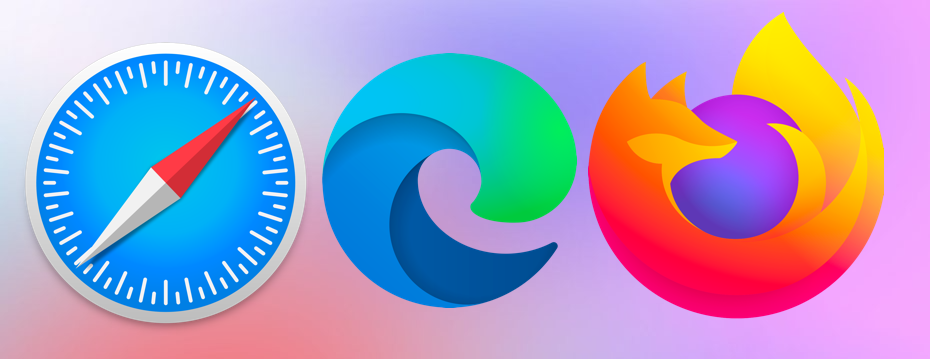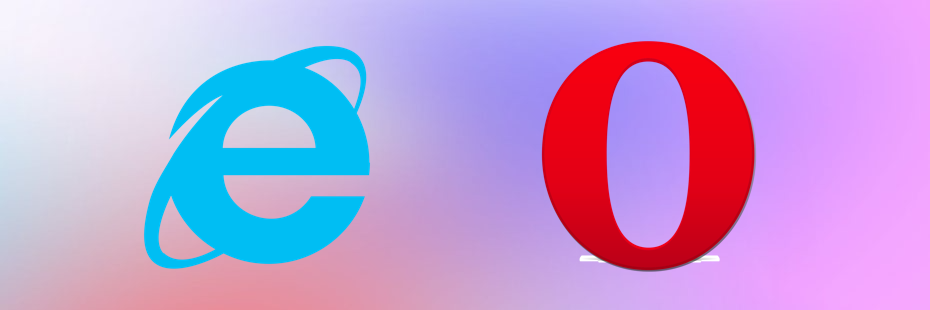The Incentives of Browser Companies
Why build a browser?
Some estimates indicate desktop users spend 60+% of their computer time in the browser. People are spending nearly 200 minutes per day with a combination of mobile and desktop web browsing. I've heard (anonymous but reliable) rumors that US office workers spend more than three hours per day in desktop browsers.
Clearly, all of these user eyeballs are valuable.
And while Chrome (and the Chromium browser project) are the winners today, browsers have always been a major battlefield between tech titans (see my former employer!) Still, no one seems to be seriously investigating the strategic thinking motivating browser development.
So let's do it.
The Landscape
Tier 1 - De Facto Standard
Google's Chrome dominates with 64% of the market across desktop and mobile usage†. Chrome is synonymous with web browsing for many (most?) internet users.

Developers are an important part of Chrome's network effects. Because of Chrome's dominant market share, developers focus on Chrome compatibility first. Developers have since become very familiar with Chrome developer tools, and there is a growing ecosystem of Chrome developer tool extensions (React, Lighthouse, etc.) These tools allow developers to build, test, and fix websites quickly. These tools also perpetuate Chrome's dominance because developers make websites that work best in Chrome. Testing in other browsers is often an afterthought.
Critically, Chrome's adoption has furthered the standardization of the web. Through Chrome, Google is the gatekeeper of modern web standards: Chrome's adoption of a web standard is the most important step to widespread adoption. And this standardization makes it easier to search the web. The Google web crawler (Googlebot) can more easily ingest all Chrome-compatible websites.
Cynically, Chrome's dominance has allowed Google to push search optimizing technologies like AMP that go against open web standards.
At this point, it's important to remember that Chromium is different than Chrome. Chromium is the open-source browser project that powers Google Chrome, but Microsoft Edge and other significant browsers also use Chromium.
While Chromium browsers have some flexibility, like choosing privacy respecting search engines, all Chromium browsers use the same JavaScript engine, and most use similar developer tools and extension APIs
Tier 2 - The Competition

Apple's Safari, Microsoft Edge, and Mozilla's Firefox all have less than 10% of the market on desktop. Even Apple's Safari, installed by default on iOS, has only 26.5% of the phone browser market†. Edge and Firefox are not even top 5 mobile browsers.
On iOS, Apple runs a similar racket to Google. All iOS browsers must use Apple's WebKit browser engine. So even if you use Chrome on iOS, you're using Apple's engine.
Tier 3 - Legacy

The third tier of browsers is the legacy tier. Most developers know Internet Explorer and Opera, but these browsers are doomed to irrelevancy.
Internet Explorer and the Trident browser engine were the de facto web standard of the early 2000s (Internet Explorer was even more dominant than Chrome in its heyday), but Internet Explorer is deprecated; Microsoft is working hard to stop supporting the application.
Opera has 2% of the market and an improbable path towards success.
Tier 4 - International & Boutique
The fourth tier is QQ browser, Sogou Explorer, and Yandex Browser, the country and language-specific browsers. These browsers are out of Russia and China, and they only have penetration in those markets. Similarly, Samsung has a mobile browser for use on Samsung Android phones.
New Wave of Browsers

Finally, we have the experimental browsers: Brave, with a privacy focus and crypto rewards; the Browser Company, which focuses on workplace productivity; and Mighty App, which delivers substantial performance improvements via streaming.
These browsers are experimenting with new business models, such as charging monthly fees or changing their relationship with advertisers.
Over the years, dozens of companies have tried to offer new browser experiences with specialty features. Typically these browsers use the Chromium engine and layer features on top. Check out Orion Browser, Vivaldi, Torch, DuckDuckGo, Bonsai, Dot Browser, SigmaOS
† Market-share stats are from [Statcounter Global Stats](https://gs.statcounter.com/browser-market-share). They're very googleable and consistent across tracking sites.
Strategic Motivations
With browser market share in mind, let's look at the strategic choices of the companies that build our browsers.
Google's Chrome

Chrome is worth around $50B per year to Google simply by driving search traffic. After all, Google pays Apple $15B a year for just 20% of the market.
But let's look historically: Google launched Google Docs (2006) before Chrome (2008). Google was attempting to drive web usage by moving traditionally desktop applications to the web before investing in a web browser.
With this in mind, Google built Chrome because Google needed more users on the web. When Chrome first launched, there was real alignment between web users and Google: with a better, more powerful, more consistent web experience there would be more web users and more Google searches.
However, user and company interests have become misaligned as Google has grown.
I recently heard a user-hostile story demonstrating the misalignment between Chrome users and Google's business priorities. A Google engineer decreased the latency with which the Omnibox (search bar) autocompleted a URL. E.g., "Faceboo" turns into facebook.com. Well, the improved performance of the autocomplete led to a decrease in searches because people no longer searched for "Faceboo." Ultimately, the engineer was asked to roll back that feature.
And there are a litany of issues like this... AMP support, user profiles, disabling ad-block, FloCs. Google's consolidation of users has, at this point, given them too much control over the future of the web.
Again, Google built Chrome to drive traffic to Google Search and they've certainly succeeded.
Apple's Safari

Apple is focused on the continuity of its ecosystem and disrupting Google's web hegemony.
Looking at the ecosystem, Apple's Safari is practically a platform for their Keychain Password Manager product. It almost makes sense. The Password Manager creates a very Apple-y cohesiveness in the overall Apple ecosystem. I can easily bring a login from my iPhone to my Mac if I use Apple's browser.
At the same time, Apple has built a differentiated and distinctly Apple-y visual offering. Love it or hate it, this continuous design language certainly makes users aware that they're in Apple-land.
Apple is also making sure that Apps are better than websites. This is why Apple forces all iOS browsers to use WebKit and why Apple has not moved to fix all Web Standards incompatibilities (although Safari has improved.)
If mobile web development were easier, mobile web apps would become more powerful and more common. Improved mobile web apps could lead iOS users to abandon Apple's App Store and move to non-platform-specific web apps, possibly leaving Apple's beautiful walled garden.
Apple is profitable enough. They merely need to defend their ecosystem from attack.
Mozilla's Firefox

Further down the list, we have Mozilla Firefox. Mozilla is in a tricky spot because they're a non-differentiated offering that does not have additional revenue streams the browser can reinforce. Mozilla's only product is the Firefox browser. The rise of mobile browsing, combined with Google and Apple's stranglehold over mobile operating systems, has limited user growth prospects. There are limited ways to drive revenue with the existing product.
Firefox is beholden to Google because Google pays for the right to offer Google search as the preferred search engine in Firefox's Omnibox. This agreement leads to a conflict of interest because Firefox's main differentiator is a better privacy model.
Sadly, I believe that Firefox's privacy features are mostly marketing. Without other revenue streams to point to, Mozilla can say they care about privacy, but privacy, historically, has not been a paid feature for most users. It seems unlikely that Firefox will ever earn significant adoption again.
Mozilla is a true browser company but needs to find paid features fast. Expect them to pander to advertisers or copy the New Wave of Browsers.
Microsoft's Edge

Microsoft Edge is the continuation of three major strategic priorities at Microsoft: embrace the web, embrace developers, and build the ecosystem. Microsoft Edge uses Google Chrome's Chromium engine as the core of the browser architecture, ensuring compatibility with the de facto web standard (Chrome compatibility.) At the same time, Microsoft Edge comes with Chrome's developer tools, which allows developers to iterate on websites while remaining within the Edge browser.
Microsoft Edge is also Microsoft's attempt to copy Apple's ecosystem tactics. While Microsoft owned the web with Internet Explorer (20yrs ago), that effort culminated in the Browser Wars and serious anti-trust investigations. This time, Microsoft will attempt to link Edge to Office for office workers, link Edge to Windows for home users, and link Edge to VSCode and Azure for software developers.
Notice that Microsoft does not need to rely on pushing search for Edge to be a good investment. While increasing Bing traffic is an ancillary benefit, it is more strategically important that developers and users love using Edge with other paid Microsoft services. Similar reasoning allows Microsoft to focus on privacy. Privacy appeals to high-value corporate customers.
Perhaps most importantly, Microsoft does not want to concede the modern browser wars if further browser investment becomes a critical strategy. So they've chosen the cheapest path by embracing Chromium.
Microsoft can afford to sponsor a browser team, but by embracing Chromium they're simply not disrupting the browser market significantly.
I should note that I wrote the bulk of this essay before Microsoft announced BNPL features in Edge. I don't think that the BNPL feature changes the core priorities Microsoft has with Edge, but it is a strategically confusing move.
I also worked for Microsoft, but all these opinions are my own.
Internet Explorer
Internet Explorer is the first member of the third tier. As a testament to Internet Explorer's enormous early successes, people still use IE because some early internet software only runs on the IE browser engine (Trident). But, realistically, Internet Explorer already has an expiration date: Microsoft has repeatedly announced its plans to stop supporting Internet Explorer.
So here IE remains...
Opera
Opera is doing something right now, but I'm not sure it matters. It's harder to see a path for success as Firefox's little brother. Opera is another example of a company that can't drive revenue through other products. As far as I can tell, Opera has an undifferentiated product and is unlikely to grow.
Regional Browsers
QQ Browser by Tencent (China), Sogou Explorer by Sogou (China), Yandex Browser by Yandex (Russia)
This group is interesting because they come from national technology companies. However, all three mimic strategies employed by the larger players. Sogou and Yandex, Chinese and Russian search companies, built browsers to drive revenue in their search products. They drive adoption with language-specific features. Tencent is employing a strategy similar to Microsoft or Apple by hinting at future integration with WeChat and QQ.
These browsers seem unlikely ever to have a significant usage breakthrough, but they are likely to stick around to support their companies' strategic initiatives.
New Wave Browsers

Now let's talk about the new wave of browsers: Brave, Mighty App, The Browser Company, and more. These companies are making new strategic choices and adopting differentiated business models. Their strategies are not to reinforce other parts of their businesses but to build a great browser that users want. Let's hope these models allow closer alignment to user needs.
Brave
Brave is the most established of the new browsers. Brave offers standard browser features, but also offers a new advertising model. You can opt in to Brave Ads, where the end user (you!) gets 70% of the ad revenue. This revenue is given in the form of Basic Attention Tokens (BAT), which can be withdrawn to a bank account or given as tips to creators.
Mighty App
Mighty App has the most differentiated offering and costs $30 per month. While Mighty markets itself as a browser for business, its primary offering is a significant speed improvement over traditional browsers. Mighty App streams your browsing experience from a remote VM. This trade-off between streaming bandwidth versus local memory and CPU constraints is compelling for people with cheaper or older computers or those using computational expensive web apps like Figma or Jira. The Mighty App website still talks about reducing computer fan noise when using Mighty App with Figma (compared to using Chrome with Figma.)
If this doesn't sound appealing to you, perhaps you're not the target audience. Imagine this: You are a designer at a small company. You use Figma for work, but you were given a crappy work laptop. Your computer hangs, dies, and generally doesn't work how you want.
Well, with Mighty App, your IT department doesn't need to buy you a new laptop; they can provision you a new subscription to Mighty for $30 a month. Mighty immediately improves your productivity but does not require an expensive purchase or hardware depreciation.
The Browser Company
The Browser Company is still in private beta, but it is branding itself as the browser for work. I've only briefly used their browser with a friend and it's unclear if The Browser Company will be paid or free.
I can say that the experience was excellent in my testing. The Browser Company offers first-class integration with Notion/Gmail/GDocs, powerful shortcuts, a new tab model, integrated notes, and more.
I could see this as a paid offering where office workers pay a small monthly fee to integrate their preferred productivity and workplace applications more deeply into the browser. Still, we'll see where The Browser Company takes their offering next.
What's Next?
At this point, we have to talk about the incentives that lead to the best user experiences and why regulators have been active in the browser space.
Simply put, consumers benefit when there is an active marketplace of browser companies attempting to attract new users.
Right now, this is not happening. Apple owns iOS browsers and Google, whether through Chrome or Chromium, owns the rest. The investment to build a new browser engine is too large of a task. A proliferation of Chromium browsers may reduce the profitability of Google's Chrome so that Google reduces their investment in Chrome development, but that outcome seems unlikely today. Chrome's $50B annual revenue is comparable to Tesla, Xiaomi, or Nike. Even if there's imperfect alignment between company and consumer, there's enough money to invest in improving the experience.
Despite my cynicism, there may be a path towards browser disruption. The New Wave of Browsers is building compelling features on top of Chromium. If one of these startups gets user traction, it could kick off a startlingly sudden change in the web ecosystem.
I am particularly hopeful for a paid user model, as a paid model directly aligns consumer and company incentives, but a new advertising model or some web3/crytpo solution may also work.
Sound off on Twitter with ideas or comments. Would love to hear what you think.
